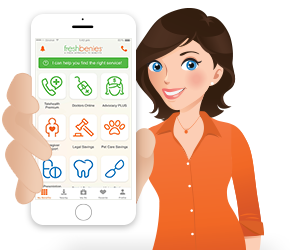4 WAYS AN ADVOCATE CAN HELP WITH CHILDBIRTH PLANNING
There we were - sitting at the dinner table discussing our day. My wife glanced over at her reflection in the window and proclaimed, “People keep asking me if I pregnant! I just can’t lose my pregnancy weight!” We had just welcomed baby #2 ten months earlier - as any loving husband would respond, I agreed with her and said “Well, you might be!”
Fast forward one hour: my wife walked out of the bathroom, pregnancy test in hand, with THAT look on her face and confirmed our suspicions. We stared at each other for a minute, then started smiling and said, “Well, time to start planning!”
Here we go again, another childbirth to plan! Have you ever had this feeling? On the outside, you’re ecstatic for a new bundle of joy, but deep down inside you’re also worried about the bundle of bills. There are about ten doctor visits in a nine-month period (not including specialists, if needed), so the actual delivery can be taxing on the checkbook. The crazy thing is, whether you have health insurance or not, it’s nearly impossible to estimate your total out-of-pocket costs until everything is said and done.
Luckily, there are services that can help you become a savvy healthcare consumer! Below are four ways a Health Advocate service can help you navigate the labor and delivery planning process…
1) Interpret health insurance
Let’s face it: insurance is hard to understand. Well, at least for me it is. I don’t know what’s covered, what’s not covered, which doctors we can visit, or which hospitals are on the “OK” list. A Health Advocate is able to call my insurance company on my behalf to get the details of my health plan – with that knowledge they can explain in plain language exactly what’s covered, what portion we’re responsible for and it also gives them the info they need to help…
2) Research providers
With this pregnancy, my wife decided to go with a new obstetrician because we were now living in a different city. We didn’t know where to begin our search. Do we call friends and family for recommendations? Pose the question on Facebook? What if all the recommended docs are out-of-network? This is another way an Advocate comes in handy. They can research doctors that are “in-network” – they’ll review ratings and call around to the top picks. On the call, they’ll get a sense for the customer service and “feel” of the provider. As one advocate said, “When we call, if the receptionist is rude or leaves us on hold forever, they don’t even make the list. We don’t want to refer clients to providers who aren’t the best.” As you can imagine, this can save a lot of time and energy when it comes to deciding on a new doctor or hospital.
3) Compare costs
Researching providers is just the beginning of how an Advocate can help. Where they shine is getting an estimated price for the medical procedure. Many Advocacy services have online “cost estimator” tools that allow you to review a list of providers by distance from your home with safety scores/quality ratings and estimated fees for common procedures which is a great starting point. In the past, I’ve asked my doctor’s office about price, and it almost seemed as if I offended someone. Their face gets tight, eyebrow raising ensues, and the response is normally something like, “That can’t be determined until afterwards.” So I ask, “Is there a starting price you can give me assuming everything goes according to plan?” It’s a reasonable question, right? NOPE, not happening. An Advocate looks for providers that are transparent in their pricing (click here for more on that) and they know (WAY better than us) how to get around the tight face and eyebrow raising.
4) Pre-negotiate pricing
Once the potential doctors/providers have been narrowed down, Advocacy companies sometimes have registered nurses on staff that can engage in pre-service cost negotiation – they might call the three providers on your final list and negotiate a price for their services. Of course, if something goes wrong during the pregnancy, that price may change, but it’s always good to have a starting point - especially if you’re self-paying or have a high deductible.
FINAL TIP: While it’s not “planning,” an Advocate can also be a BIG help when the medical bills start streaming in – that’s about the LAST thing on your mind with a month-old baby at home, right? An Advocate can review them for errors, organize them – and even negotiate with providers on your behalf. Click here for more on that.
In the end, the pregnancy, labor and delivery went flawlessly (my wife is a stud). Now, we just need some sleep.
Now it’s your turn to tell us your story. Have you had to plan a labor and delivery on your own? Would you consider using an Advocate to help? Do you have questions? Feel free to post them in the comments below or email me at rey@freshbenies.com.
















